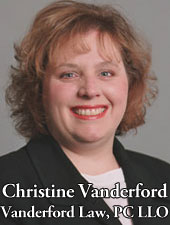As life generally goes, there are always things that happen that you were unable to foresee or plan for. Conversely, there are plenty of events and moments in life that we look forward to in the future and take great pride in planning. One of the more important aspects of planning for a major life event is to get guidance from those who know the most about what you will be taking on. Sometimes finding the best professionals for the job is tricky, but we have taken the guesswork out of the process by providing some information from experts who can be of assistance to you in your upcoming endeavors.
Investment Planning
 Planning is wise when making any kind of investment, no matter what it may be. One major investment that requires a plan, to be executed at certain stages of the process, is the purchase of a home. Craig A. Loeck, an Associate Broker and Certified Residential Specialist with Woods Bros Realty, employs a method for working with his clients where they plan together as a team. He says, “Before I move forward with potential clients, I arrange a face to face meeting where we get to interview one another, which also doubles as a planning session that will outline the rest of the process. This not only gives us the chance to get a feel for each other, but it also presents the first opportunity to discuss your hopes, dreams, ideas, background and current personal information that would be of use in this particular situation. It is important to know that anything we discuss stays between us, and it is solely for the purpose of getting you as close as possible to exactly what you want while alerting you to anything you may need to be aware of moving forward. Discussing financial information can be particularly sensitive, but understanding what you can afford and what debt you will be taking on is crucial to making informed decisions. It is also important to note that there may be a difference with the amount that a banker will pre-qualify you for versus the amount that you are comfortable with for your house payment each month. I always stress being conservative in this area. It is very easy to get wrapped up in the excitement of deciding which house you will buy, and getting all of the amenities you have always dreamed of, but once you have settled in you may be stuck in your lovely house because you can no longer afford to go out to the movies or on a vacation. I promise that if you get most of what you want at a price that allows you to live comfortably, you will appreciate it much more in 5-10 years. I also encourage my clients to pay attention to their own conservatism when deciding what amount they can place as a down payment. You should definitely avoid draining your entire savings account if at all possible. You will be happy to have some extra money when things come up such as closing costs, moving fees, taxes or improvements that you want to make right away.
Planning is wise when making any kind of investment, no matter what it may be. One major investment that requires a plan, to be executed at certain stages of the process, is the purchase of a home. Craig A. Loeck, an Associate Broker and Certified Residential Specialist with Woods Bros Realty, employs a method for working with his clients where they plan together as a team. He says, “Before I move forward with potential clients, I arrange a face to face meeting where we get to interview one another, which also doubles as a planning session that will outline the rest of the process. This not only gives us the chance to get a feel for each other, but it also presents the first opportunity to discuss your hopes, dreams, ideas, background and current personal information that would be of use in this particular situation. It is important to know that anything we discuss stays between us, and it is solely for the purpose of getting you as close as possible to exactly what you want while alerting you to anything you may need to be aware of moving forward. Discussing financial information can be particularly sensitive, but understanding what you can afford and what debt you will be taking on is crucial to making informed decisions. It is also important to note that there may be a difference with the amount that a banker will pre-qualify you for versus the amount that you are comfortable with for your house payment each month. I always stress being conservative in this area. It is very easy to get wrapped up in the excitement of deciding which house you will buy, and getting all of the amenities you have always dreamed of, but once you have settled in you may be stuck in your lovely house because you can no longer afford to go out to the movies or on a vacation. I promise that if you get most of what you want at a price that allows you to live comfortably, you will appreciate it much more in 5-10 years. I also encourage my clients to pay attention to their own conservatism when deciding what amount they can place as a down payment. You should definitely avoid draining your entire savings account if at all possible. You will be happy to have some extra money when things come up such as closing costs, moving fees, taxes or improvements that you want to make right away.
Once we have initially ironed things out, I work diligently to match this information up with houses that are currently on the market in order to target our efforts, so we don’t waste our time and effort in the long run. Instead of going around town visiting every house on the market, whether it is $50,000 or $500,000, we can check out the houses that are best for you. This is the part where we move from financing to fun! When comparison shopping, a methodical approach is wise but there is definitely no right or wrong number of houses to look at before finding the perfect one for you. Falling in love with the first house you walk through can have just as good an outcome as not settling until the 300th house you visit is the one. Also, remember that there are always good values to be found but never prices available to buyers that are completely unrealistic unless there are strings attached, so beware of those ‘too good to be true’ properties. Furthermore, if you are out cruising around town keep a notebook with you so if you drive by a property you are interested in we can set up a time for a tour or find out when they will be hosting the next open house. Your agent should be supportive and honest throughout the entire process, but what they shouldn’t do is rush or pressure you to close a deal. There are lots of choices to be made, and lots of things to plan for throughout the process, but I assure you that taking the big scary step and investing your money in ownership is by far one of the most rewarding choices you will make in life. The feeling of pulling up in your own driveway, cooking in your own kitchen, gardening or relaxing in your own backyard, spending family time and making memories–that is what home ownership is all about.”
Financial Planning
 When planning for any life change, your financial situation plays a major role in the decisions you make. Matt Egge, a financial representative with Northwestern Mutual Financial Network, advises, “If you are looking to finance a new project or are planning to make any major investments, taking an overall look at your current financial situation is a great starting point. Important topics to address include what your current budget looks like, how much the project you are looking to finance or the investment you wish to make will cost you, and how both coincide with the timeline or deadline for completion. There are many options for saving and investing, and it is important to find a way that best fits your specific situation. For example, if you have enough in your budget and enough time to save the amount you need, a basic savings account is probably the easiest and least stressful way to finance the project. However, a drawback to using this method is that you could otherwise be investing this money in ways that could provide you with a higher rate of return. If you do not have the ability to save the necessary amount of funds in enough time, you may need to take a look at getting a loan to finance the project. There can be some benefits to going this route, as you may be able to find a low interest and/or fixed interest rate loan that is tax deductible. Some other options to consider when financing a project could include utilizing the cash value from a life insurance policy, withdrawing assets from an individual investment account, or taking an early distribution from a qualified plan. Each of these options can have some tax consequences and therefore should be discussed with your financial advisor and/or accountant.” Egge, who works closely with those who are looking into financial planning for life changes on a daily basis, stresses that it is never too early or too late to begin financial planning. He adds, “Although it is never too late, an optimal starting point for looking into financial planning is right when you start out on your own and begin your career. Everyone’s vision of being financially secure looks different, but you can never be too prepared. Laying a good financial foundation early on provides peace of mind and confidence in your financial security as you navigate your path through life. You will experience a lifetime of changes, so it is important for your financial plan to remain flexible in order to adapt to changes over the years–and for you to revisit it often.”
When planning for any life change, your financial situation plays a major role in the decisions you make. Matt Egge, a financial representative with Northwestern Mutual Financial Network, advises, “If you are looking to finance a new project or are planning to make any major investments, taking an overall look at your current financial situation is a great starting point. Important topics to address include what your current budget looks like, how much the project you are looking to finance or the investment you wish to make will cost you, and how both coincide with the timeline or deadline for completion. There are many options for saving and investing, and it is important to find a way that best fits your specific situation. For example, if you have enough in your budget and enough time to save the amount you need, a basic savings account is probably the easiest and least stressful way to finance the project. However, a drawback to using this method is that you could otherwise be investing this money in ways that could provide you with a higher rate of return. If you do not have the ability to save the necessary amount of funds in enough time, you may need to take a look at getting a loan to finance the project. There can be some benefits to going this route, as you may be able to find a low interest and/or fixed interest rate loan that is tax deductible. Some other options to consider when financing a project could include utilizing the cash value from a life insurance policy, withdrawing assets from an individual investment account, or taking an early distribution from a qualified plan. Each of these options can have some tax consequences and therefore should be discussed with your financial advisor and/or accountant.” Egge, who works closely with those who are looking into financial planning for life changes on a daily basis, stresses that it is never too early or too late to begin financial planning. He adds, “Although it is never too late, an optimal starting point for looking into financial planning is right when you start out on your own and begin your career. Everyone’s vision of being financially secure looks different, but you can never be too prepared. Laying a good financial foundation early on provides peace of mind and confidence in your financial security as you navigate your path through life. You will experience a lifetime of changes, so it is important for your financial plan to remain flexible in order to adapt to changes over the years–and for you to revisit it often.”
 Financial planning goes hand in hand with planning for all of the major and minor investments you will make in life. Jeffry Phillips, a CERTIFIED FINANCIAL PLANNERTM representing Midwest Financial Services, states, “True financial planning is much more than an isolated solution to a financial problem or goal. Financial planning means taking a holistic approach to goal setting and financial decision making. Ideally, all aspects of one’s financial life would be taken into consideration and coordinated to achieve financial goals. Working with a Certified Financial Planner™ professional means that you are working with someone who has undergone extensive training in all aspects of financial planning, including: estate planning, retirement planning, investments, taxes, insurance and employee benefits. These credentialed professionals are expected to adhere to a code of ethics and professional responsibility, and basic principles including: Integrity, Objectivity, Competence, Fairness, Confidentiality, Professionalism and Diligence. A financial plan is a roadmap to pursue one’s financial and life goals and a CFP® professional is uniquely qualified to bring all aspects of one’s financial life together in an organized manner. To keep up with an individual’s changing circumstances, financial planning must be dynamic. The birth of a child, an unexpected death, an inheritance, job changes, health changes; all of these and more may require that adjustments be made to your long and short-term plans. By building a solid relationship with the professionals you work with, you will be able to adjust your financial plan as circumstances dictate.” Phillips advises, “Because financial markets, legislation and financial products are constantly changing and evolving, a CFP® professional must likewise be constantly evolving and learning. The adoption and implementation of the Affordable Care Act is an example of changing legislation that will have far reaching effects on individuals and businesses. It is more important than ever that the costs of health insurance and healthcare in retirement be treated as a key component of retirement planning. Financial decisions are never made in a vacuum. Decisions such as taking on debt or delaying investing for retirement can have not only far-reaching effects on the quality of one’s retirement, but likewise impact one’s current lifestyle and choices. Taking on debt may influence how you save for retirement. Investment decisions, may impact one’s tax or estate planning. By working within the framework of a financial plan, we can begin to see how various financial decisions will impact other parts of our financial lives. Taking a holistic approach to one’s finances, gives the best odds of making smart financial decisions throughout one’s lifetime.
Financial planning goes hand in hand with planning for all of the major and minor investments you will make in life. Jeffry Phillips, a CERTIFIED FINANCIAL PLANNERTM representing Midwest Financial Services, states, “True financial planning is much more than an isolated solution to a financial problem or goal. Financial planning means taking a holistic approach to goal setting and financial decision making. Ideally, all aspects of one’s financial life would be taken into consideration and coordinated to achieve financial goals. Working with a Certified Financial Planner™ professional means that you are working with someone who has undergone extensive training in all aspects of financial planning, including: estate planning, retirement planning, investments, taxes, insurance and employee benefits. These credentialed professionals are expected to adhere to a code of ethics and professional responsibility, and basic principles including: Integrity, Objectivity, Competence, Fairness, Confidentiality, Professionalism and Diligence. A financial plan is a roadmap to pursue one’s financial and life goals and a CFP® professional is uniquely qualified to bring all aspects of one’s financial life together in an organized manner. To keep up with an individual’s changing circumstances, financial planning must be dynamic. The birth of a child, an unexpected death, an inheritance, job changes, health changes; all of these and more may require that adjustments be made to your long and short-term plans. By building a solid relationship with the professionals you work with, you will be able to adjust your financial plan as circumstances dictate.” Phillips advises, “Because financial markets, legislation and financial products are constantly changing and evolving, a CFP® professional must likewise be constantly evolving and learning. The adoption and implementation of the Affordable Care Act is an example of changing legislation that will have far reaching effects on individuals and businesses. It is more important than ever that the costs of health insurance and healthcare in retirement be treated as a key component of retirement planning. Financial decisions are never made in a vacuum. Decisions such as taking on debt or delaying investing for retirement can have not only far-reaching effects on the quality of one’s retirement, but likewise impact one’s current lifestyle and choices. Taking on debt may influence how you save for retirement. Investment decisions, may impact one’s tax or estate planning. By working within the framework of a financial plan, we can begin to see how various financial decisions will impact other parts of our financial lives. Taking a holistic approach to one’s finances, gives the best odds of making smart financial decisions throughout one’s lifetime.
He adds, “While a CERTIFIED FINANCIAL PLANNER™ Professional can help you develop and implement a financial plan, much of the responsibility for the success of that plan still rests with the individual. Overall, my best advice is to start early, set measurable and realistic expectations and goals, revisit and fine tune those goals regularly and seek out a qualified professional to help.”
Securities and financial planning offered through LPL Financial, a registered investment advisor, member FINRA/SIPC. Insurance products offered through LPL Financial or its licensed affiliates. The investment products sold through LPL Financial are not insured Midwest Bank deposits and are not FDIC insured. These products are not obligations of the Midwest Bank and are not endorsed, recommended or guaranteed by Midwest Bank or any government agency. The value of the investment may fluctuate, the return on the investment is not guaranteed, and loss of principal is possible.
Family Planning
 While for some it comes as a surprise, for many others having a child and building a family is a planned life experience. Women’s Clinic of Lincoln, P.C. is an excellent resource for information and guidance, in addition to providing a wealth of essential health services for women and their families before, during and after a pregnancy. Jeri Tegtmeier, APRN, Director of Obstetrics at Women’s Clinic of Lincoln, P.C. provides the following tips to new and expecting parents:
While for some it comes as a surprise, for many others having a child and building a family is a planned life experience. Women’s Clinic of Lincoln, P.C. is an excellent resource for information and guidance, in addition to providing a wealth of essential health services for women and their families before, during and after a pregnancy. Jeri Tegtmeier, APRN, Director of Obstetrics at Women’s Clinic of Lincoln, P.C. provides the following tips to new and expecting parents:
“First of all, it is very important to relax during the pregnancy! One way to alleviate stress is to gather information directly from your providers and not Dr. Google, Bing, or Wikipedia. Find a provider you feel comfortable with so you can ask questions or express concerns to them. It is important to remember that pregnancy is most often a normal healthy process, which allows you to continue your normal lifestyle with the exception of a few slight modifications. There are also options available for genetic testing or chromosome testing available during the pregnancy that can ease the stress of worrying about potential outcomes. It will help to have a baseline as to what is normal and expected month to month in your health as well as baby’s growth and development. Specifically during and after delivering your baby, there are decisions that will need to be made that you can prepare for in advance such as choosing a hospital, what options are available for pain management during the labor and delivery process and whether you will breastfeed or bottle-feed. Many times your provider, hospital, or other healthcare resources will offer very helpful and informative classes.
I always emphasize the importance of taking care of yourself emotionally, physically and in your relationship. Physically, be aware of warning symptoms that may indicate a possible problem like changes in fetal movement, aches and pains. Remember that term pregnancies require a gestation period of 40 weeks and there will be times that you are uncomfortable and ready to get this condition over with, but it is best for baby to get closer to full term. I always tell my girls that by the time they are 6 weeks postpartum they will not remember how uncomfortable they were at the end of the pregnancy. At their 6 week postpartum visit, I again remind them that God makes this process and while we will remember that we were physically and emotionally exhausted, we won’t have to experience that feeling of the exhaustion again. Exercise and a healthy diet with lots of protein are also important, and this is again something that you should educate yourself about through the proper channels.
When planning ahead for the other aspects of your life that will change when your new little one arrives, the best thing to do is talk about it early and often. Discuss possible changes in roles, family relationships, and friendships. As financial changes will also likely occur, it is important to know what your deductible is on your insurance plan, as well as your pregnancy coverage and copay amount, and how you will pay for your changing wardrobe needs, baby essentials such as diapers and wipes, etc. I always talk to couples about setting up a will during the pregnancy, as I know firsthand how life can change in an instant. Having the discussion of who would care for your children if something happened to you is also very important, and a step down from that, finding a babysitter is a huge decision that will also affect you financially and emotionally. Also, talk openly about religious decisions well ahead of time, such as when you will have your child baptized or what faith you will raise them in if any.
Finally, for all women who will be planning a future pregnancy, I highly recommend contacting your provider if you have any chronic health issues such as hypertension, obesity, kidney problems, etc. to set up a treatment plan for the healthiest pregnancy outcome. If you have any questions, please feel free to call me at (402) 434-3376 Ext. 1 or email me at womensclinicob@neb.rr.com.”
Retirement Planning
Planning for your “Golden Years” will include a healthy mix of enjoyable and more serious aspects, including retirement plans and end of life arrangements.
 Christine Vanderford, of Vanderford Law, PC LLO, advises, “Coordinating a legal plan and a financial plan is the key to efficient tax planning and long term success in planning for retirement and future generations. Be sure the professionals you trust, i.e. your attorney, financial advisor and CPA are on the same page with your overall financial goals and expectations so that they can work together to advise you toward that end. Everyone should have basic estate planning, including a Last Will and Testament, Power of Attorney, and Advanced Health Care Directive, including a Living Will. We, at Vanderford Law, can assist individuals at any age, or families at any stage of life. People need to make sure they take care of their loved ones, as death makes no appointment. In the event we are not here tomorrow, the right documents, written effectively, can provide direction, control and stability over financial matters so that life can continue for those left behind. Furthermore, technology has made the advent of multiple passwords for online accounts and activities a necessity. Making sure those are documented somewhere safe is essential to picking up the pieces after someone passes away. I advise everyone to compile a master list and keep it updated, and notify those who need to be aware of the information regarding how to access it.”
Christine Vanderford, of Vanderford Law, PC LLO, advises, “Coordinating a legal plan and a financial plan is the key to efficient tax planning and long term success in planning for retirement and future generations. Be sure the professionals you trust, i.e. your attorney, financial advisor and CPA are on the same page with your overall financial goals and expectations so that they can work together to advise you toward that end. Everyone should have basic estate planning, including a Last Will and Testament, Power of Attorney, and Advanced Health Care Directive, including a Living Will. We, at Vanderford Law, can assist individuals at any age, or families at any stage of life. People need to make sure they take care of their loved ones, as death makes no appointment. In the event we are not here tomorrow, the right documents, written effectively, can provide direction, control and stability over financial matters so that life can continue for those left behind. Furthermore, technology has made the advent of multiple passwords for online accounts and activities a necessity. Making sure those are documented somewhere safe is essential to picking up the pieces after someone passes away. I advise everyone to compile a master list and keep it updated, and notify those who need to be aware of the information regarding how to access it.”
According to a survey conducted by the Employee Benefit Research Institute in 2013, 52% of all workers reported they were “not too” or “not at all” confident they would have enough money to pay for their medical expenses in retirement. The other 48% said they were “very” or “somewhat” confident they could pay the cost. Regardless of whether you’re confident or not, it’s important to have an idea about how much healthcare may cost in retirement. By putting the costs in better perspective, you might be able to better understand what you can pay for and what you can’t.
A retired household faces three types of health-care expenses:
1. A household may have the expense of premiums for Medicare Part B (which covers physician and outpatient services) and Part D (which covers drug-related expenses). Typically, Part B and Part D are taken out of a person’s Social Security check before it mailed, so the premium cost is often overlooked by retirement-minded individuals.
2. The household should expect to pay for co-payments related to Medicare-covered services that are not paid by Medigap or other health insurance.
3. The retired household should expect to pay for dental care, eyeglasses, and hearing aids, which are typically not covered by Medicare or other insurance programs.
 Jason Peplinski of FP Wealth Management offers the following advice on preparing for healthcare costs in retirement, including when to start taking social security:
Jason Peplinski of FP Wealth Management offers the following advice on preparing for healthcare costs in retirement, including when to start taking social security:
“The Social Security program allows you to start receiving benefits as soon as you reach 62. The question is, ‘should you?’ Monthly payments differ substantially depending on when you start receiving benefits. The longer you wait (up to age 70), the larger each monthly check will be. The sooner you start receiving benefits, the smaller the check.
From the Social Security Administration’s point of view, it’s simple: If a person lives to the average life expectancy, the person will eventually receive roughly the same amount in lifetime benefits no matter when he or she chooses to start receiving them. In actual practice, it’s not quite that straightforward, but the principle holds.
The key phrase is “if the person lives to average life expectancy.” If a person exceeds the average life expectancy, and has opted to wait to receive benefits, he or she will start to accumulate more from Social Security.
There is no single “right” answer to the question of when to start benefits. Many base their decision on family considerations, economic circumstances, and personal preferences.
If you have a spouse, the decision about when to start benefits gets more complicated—particularly if one person’s earnings were considerably higher than the other’s. The timing of spousal benefits should be factored into a decision. A typical married couple, age 65, can expect these health-care expenses to add up to $197,000 over their lifetime, according to a study by the Center for Retirement Research. The study also concluded that there is 5% risk these costs will exceed $311,000. If nursing home costs are included, the uninsured health costs for a typical couple jumps to $260,000, with a 5% risk of it exceeding $570,000.
Should you expect to pay this amount? Possibly. Seeing the results of one study may help you make some critical decisions when creating a strategy for retirement. Without a solid approach, health-care expenses may add up quickly and alter your retirement spending.
When considering at what age to start Social Security benefits, it may be a good idea to review all the assets you have gathered for retirement. Some may want the money sooner based on how assets are positioned, while others may benefit by waiting. So as you near a decision point, it may be best to consider all your options before moving forward.”
Life, by nature, is incredibly unpredictable; but luckily some of the major, and best, things in life are those that can be planned for in advance. Furthermore, you never have to go it alone as there are many local businesses and professionals that would be more than happy to help you navigate through each milestone so that you can fully enjoy what the future holds.

